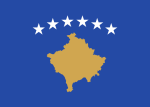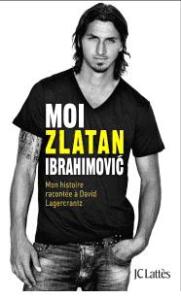GNK Dinamo Zagreb’s executive director Zdravko Mamić announced his resignation once again. At the same time an initiative “For our Dinamo”, composed of Croatian ex-football stars, is determined to crush Mamić’s 11 harsh years
This might seem like an ordinary football shift, however its implications go much deeper. Dinamo Zagreb is Croatia’s most successful club with 15 league trophies since the Croatian Independence, of which are 8 consecutive. And it is likely Dinamo will celebrate its 16th very soon. While the club is successful on the national level, fan support on the stands is nearly inexistent. Since 2010 Dinamo’s ultras group Bad Blue Boys boycott nearly all domestic matches, creating a shameful and poor atmosphere during performances.
A business, not a football club
The situation is such because of its director Zdravko Mamić who, while successfully keeping the club at top flight, is criticized to have imposed an autocratic reign since 2003 and created a large business club with controversial financial transactions. Since his arrival, according to the fans, the club lost its soul by constant player transfers to controversially legal branch clubs and replacements of coaches. The club has been criticized of being solely business-orientated with controversial and corrupted administration.
2014 – the decisive year?
The problem is not in whether the club is bad sportily or not, but that it serves as an example of a vivid undemocratic and corrupted leadership. Dinamo Zagreb is one of the most popular Balkan clubs and a childhood pride of Zagreb locals. Though each year of undemocratic administration seems to undermine this quality. However, things are finally starting to look bright with the initiative “For our Dinamo”, composed of a number of Croatian 1998 World Cup Bronze-medal winners, who are actively trying to unite all the fans and promote the democratic idea of “One member, one vote” and democratically elect the club’s CEO for a 4-year mandate. Angry, Zdravko Mamić accused the initiative of being an “anti-Mamić gang” trying to destroy the club and its long success-story.
All this pressure made Mamić once again decide to annonce his resignation. “Everyone is against us. From media to the government. I do not have any other choice but to leave”, said Mamić. Whether this accumulating pressure will result in his actual resignation is unknown. According to the past experiences, it is unlikely to happen.The “For our Dinamo” initiative hopes to be strong enough to actually persuade Mamić and his administration to resign and make democratic elections. Dario Šimić, one of the founders of the initiative and a former football star foreshadowed once outcame: “We know how the dictators ended up throughout history”.
Andro Nogolica

 One did not need to be a football expert to realize that the first match of the Kosovar national team was anything but ordinary. No national anthem was played and the yellow-blue flag was not displayed at the stadium. It was a part of the
One did not need to be a football expert to realize that the first match of the Kosovar national team was anything but ordinary. No national anthem was played and the yellow-blue flag was not displayed at the stadium. It was a part of the 